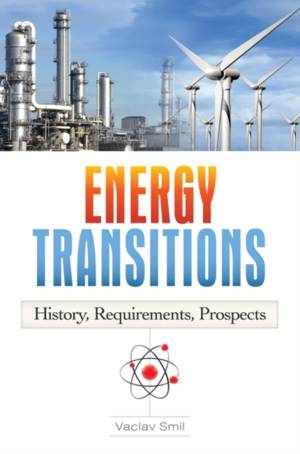
- Retrait gratuit dans votre magasin Club
- 7.000.000 titres dans notre catalogue
- Payer en toute sécurité
- Toujours un magasin près de chez vous
- Retrait gratuit dans votre magasin Club
- 7.000.0000 titres dans notre catalogue
- Payer en toute sécurité
- Toujours un magasin près de chez vous
127,45 €
+ 254 points
Format
Description
This bold and controversial argument shows why energy transitions are inherently complex and prolonged affairs, and how ignoring this fact raises unrealistic expectations that the United States and other global economies can be weaned quickly from a primary dependency on fossil fuels.
Energy transitions are fundamental processes behind the evolution of human societies: they both drive and are driven by technical, economic, and social changes. In a bold and provocative argument, Energy Transitions: History, Requirements, Prospects describes the history of modern society's dependence on fossil fuels and the prospects for the transition to a nonfossil world. Vaclav Smil, who has published more on various aspects of energy than any working scientist, makes it clear that this transition will not be accomplished easily, and that it cannot be accomplished within the timetables established by the Obama administration. The book begins with a survey of the basic properties of modern energy systems. It then offers detailed explanations of universal patterns of energy transitions, the peculiarities of changing energy use in the world's leading economies, and the coming shifts from fossil fuels to renewable conversions. Specific cases of these transitions are analyzed for eight of the world's leading energy consumers. The author closes with perspectives on the nature and pace of the coming energy transition to renewable conversions.Spécifications
Parties prenantes
- Auteur(s) :
- Editeur:
Contenu
- Nombre de pages :
- 192
- Langue:
- Anglais
Caractéristiques
- EAN:
- 9780313381775
- Date de parution :
- 26-05-10
- Format:
- Livre relié
- Format numérique:
- Ongenaaid / garenloos gebonden
- Dimensions :
- 163 mm x 236 mm
- Poids :
- 458 g

Les avis
Nous publions uniquement les avis qui respectent les conditions requises. Consultez nos conditions pour les avis.






